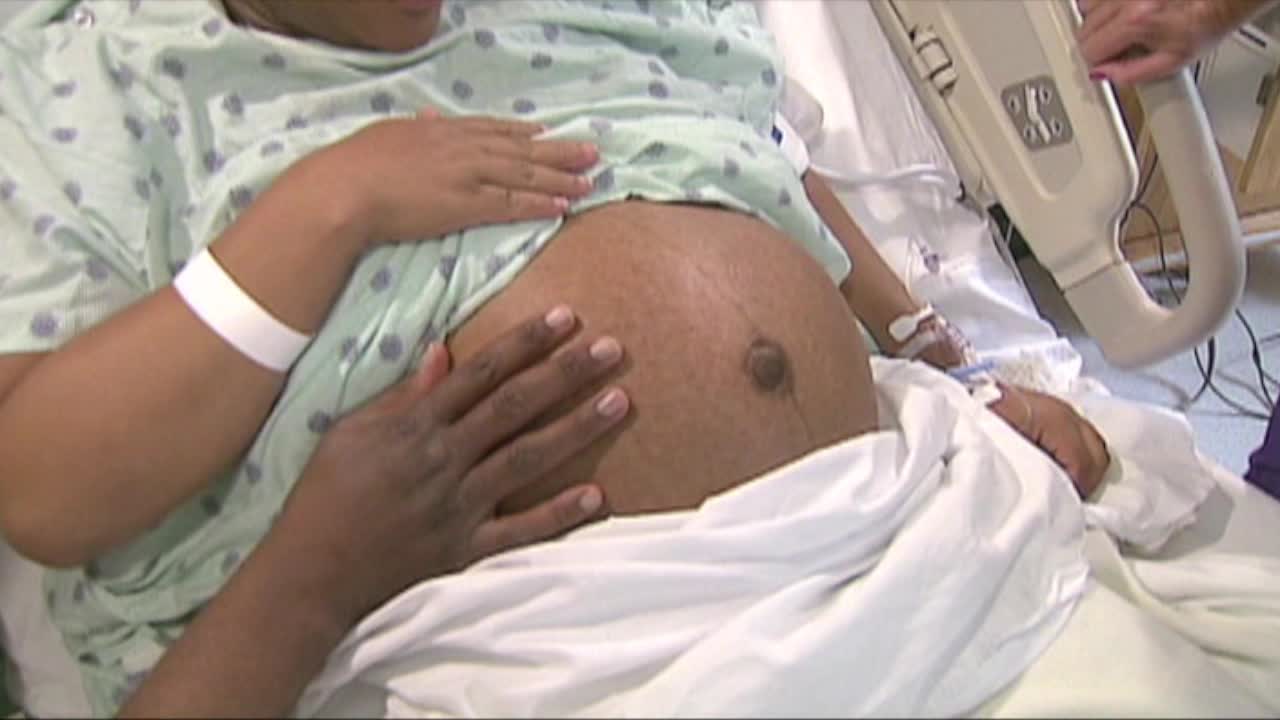Maternal deaths increased during pandemic, CDC data shows, local work to help
[anvplayer video=”5144565″ station=”998122″]
A grim report using data from the Centers for Disease Control and Prevention (CDC) shows there was an increase in maternal deaths during the pandemic.
According to the U.S. Government Accountability Office, about a fourth of all maternal deaths in 2020 and 2021 were directly related to COVID-19. The report also shows the maternal death rate was disproportionately higher for Black or African-American and Hispanic Women.
Existing barriers to accessing care and reduced access to public transportation and child care also worsened for women of color during the pandemic, according to the report.
“We had a lot of very sick moms with COVID,” Dr. Katherine Bigelow, maternal fetal medicine physician with Allina Health’s Mother Baby Center, said about the heart of the pandemic – specifically when the Delta variant was spreading.
“We were dealing with a lot of incredibly sick moms and making some really hard decisions about maternal care,” Dr. Bigelow added.

Fortunately, Dr. Bigelow said they did not see an increase in maternal deaths – but the Mother Baby Center did see evidence of the disparities address in the report.
“We have continued to see disparities in care and worse outcomes, particularly for our moms of color,” Dr. Bigelow said.
Steps have been taken to address these issues – Dr. Bigelow said after connecting with community members, patients and staff, the health center rebranded to include families of color. She said they’ve also started training that focuses on diversity, equity and inclusion.
Conditions and patients are getting better — Roots Community Birth Center, located in north Minneapolis, said they’ve come a long way from the early days of the pandemic.
“[It] was terrifying to not be able to tell people [their] risk, because nobody understood what people’s risks were,” Rebecca Polston, licensed midwife with the birthing center, said.
Polston said one of their main missions is making out-of-hospital births accessible and welcoming for all families.
“The key is being able to treat people as an individual and be able to see people in the context of what’s important to them and what their cultural practices are around birth,” Polston said about their care.
Polston said the pandemic made pregnancy complications worse – mentioning an increase in hemorrhaging and pre-eclampsia, or a sudden spike in blood pressure.
Well aware of the maternal disparities, Polston said 65% of their patients are women of color.
“I think that there’s a lot of people trying really hard to make it better,” Polston said, adding: “I think one of the ways that we make it better is by amplifying those people who are doing the good work. But [also] to being willing to take a hard look at our systems and what’s working and what’s not.”
Below are a list of local resources to help mothers-to-be along their journey.